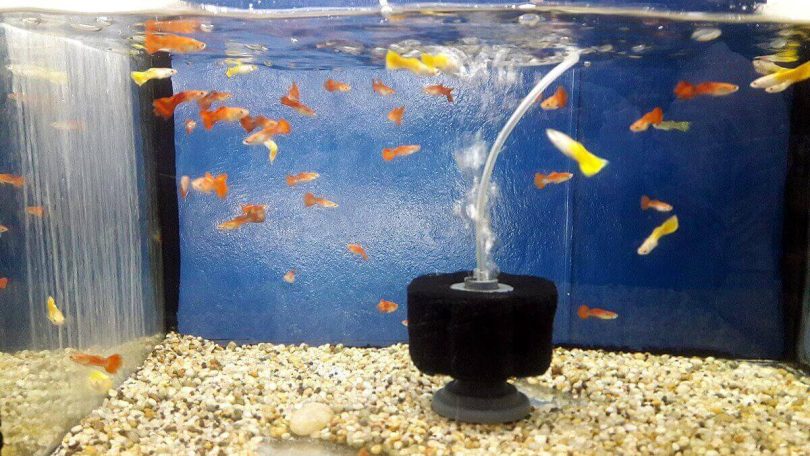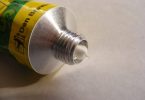Table of Contents
If you’re a fish enthusiast, you know how important it is to maintain a clean and healthy environment for your fish. One of the key components of a healthy fish tank is the filtration system. However, have you ever wondered if it’s possible to over-filter your tank? Can a fish tank be over-filtered?
The short answer is yes, it is possible to over-filter your fish tank. While it may seem counterintuitive, having too powerful of a filtration system can actually harm your fish.
Fish need a certain level of bacteria and microorganisms in their environment to maintain a healthy balance. If your filter is too strong, it can remove too many of these beneficial organisms, leaving your fish vulnerable to disease and other health issues.
Additionally, an over-filtered tank can cause stress for your fish, as they may struggle to swim against the strong currents created by the filter.
So, while it’s important to have a good filtration system in your fish tank, it’s equally important to ensure that it’s not too powerful for your fish.
In the next sections, we’ll explore some of the signs of an over-filtered tank and how to prevent it from happening.
What is Over-Filtering?
When it comes to maintaining a fish tank, filtration is essential for the health and well-being of your aquatic pets.
However, it is possible to have too much of a good thing. Over-filtering your fish tank can have negative consequences on the overall health of your aquarium.
In this section, we will discuss what over-filtering is, the importance of proper filtration, and signs of over-filtering.
The Importance of Proper Filtration
Proper filtration is crucial for maintaining a healthy and thriving aquarium. Filtration helps to remove harmful toxins and waste from the water, ensuring a safe and clean environment for your fish to live in.
Without proper filtration, your fish could suffer from a variety of health problems, including fin rot, ammonia poisoning, and even death.
However, it’s important to note that there is such a thing as too much filtration. Over-filtering your aquarium can lead to a variety of issues, including a lack of beneficial bacteria, a decrease in oxygen levels, and stress on your fish.
Signs of Over-Filtering
So, how do you know if your fish tank is being over-filtered? Here are a few signs to look out for:
- Low ammonia and nitrite levels: While it may seem like a good thing, if your ammonia and nitrite levels are consistently low, it could be a sign that your tank is being over-filtered. Beneficial bacteria need these toxins to thrive, and without them, your tank may not be properly cycled.
- Low oxygen levels: Over-filtering can lead to a decrease in oxygen levels in your tank, which can be harmful to your fish. If you notice your fish gasping for air at the surface of the water, it could be a sign that your tank is being over-filtered.
- Stress on your fish: Over-filtering can create a strong current in your tank, which can stress out your fish. If you notice your fish constantly hiding or swimming frantically, it could be a sign that your tank is being over-filtered.
In conclusion, while filtration is important for maintaining a healthy aquarium, it’s essential to strike a balance and avoid over-filtering your tank.
By keeping an eye out for the signs of over-filtering and adjusting your filtration system accordingly, you can ensure that your fish are happy and healthy for years to come.
Effects of Over-Filtering
Stress on Fish
Over-filtering your fish tank can cause stress on your fish. This is because the water flow can become too strong, making it difficult for fish to swim and causing them to become fatigued. This can lead to a weakened immune system, making them more susceptible to diseases.
In addition, over-filtering can cause too much oxygen to be introduced into the water, which can also stress out fish.
This is because fish have adapted to live in specific oxygen levels and sudden changes can cause them to become stressed and even die.
Altered Water Chemistry
Over-filtering can cause the water chemistry in your fish tank to become imbalanced. This is because the filter removes not only the harmful substances but also the beneficial ones. This can lead to a decrease in pH levels, making the water more acidic, which can be harmful to fish.
Over-filtering can also cause a decrease in carbonate hardness, which is important for maintaining a stable pH level. This can cause the pH level to fluctuate, which can be stressful for fish.
Reduced Biological Filtration
Over-filtering can also reduce the effectiveness of your biological filtration. This is because the filter can remove too many beneficial bacteria, which are important for breaking down harmful substances in the water.
Without enough beneficial bacteria, harmful substances can build up in the water, leading to poor water quality and stress on your fish.
To avoid over-filtering, it is important to choose the right filter for your fish tank and to clean it regularly. It is also important to monitor the water chemistry and the behavior of your fish to ensure they are not becoming stressed.
How to Avoid Over-Filtering
Calculating Proper Filtration
To avoid over-filtering your fish tank, it’s important to calculate the proper filtration for your tank’s size and the number of fish you have.
A good rule of thumb is to have a filter that can handle at least three times the volume of your tank per hour. For example, if you have a 20-gallon tank, you should have a filter that can handle at least 60 gallons per hour.
To calculate the proper filtration for your tank, you’ll need to consider the following factors:
- Tank size
- Number of fish
- Type of fish
- Feeding habits
- Waste production
Once you’ve determined the proper filtration for your tank, you’ll need to choose the right filter.
Choosing the Right Filter
Choosing the right filter for your fish tank is critical to maintaining a healthy environment for your fish. There are several types of filters to choose from, including:
- Hang-on-back filters
- Canister filters
- Internal filters
- Sponge filters
Hang-on-back filters are the most common type of filter and are easy to install and maintain. Canister filters are more powerful and can handle larger tanks, but they can be more expensive and difficult to set up.
Internal filters are great for smaller tanks and can be hidden from view, but they may not be powerful enough for larger tanks.
Sponge filters are inexpensive and easy to maintain, but they may not provide enough filtration for larger tanks.
Consider the size of your tank and the number of fish you have when choosing the right filter. It’s always better to choose a filter that’s a little more powerful than you need, rather than one that’s not powerful enough.
Maintaining Proper Filtration
Once you’ve chosen the right filter for your tank, it’s important to maintain proper filtration to avoid over-filtering. This includes:
- Cleaning the filter regularly
- Replacing filter media as needed
- Avoiding overfeeding your fish
- Not overcrowding your tank
Cleaning your filter regularly will ensure that it’s functioning properly and removing waste from your tank. Replacing filter media as needed will also help to maintain proper filtration.
Overfeeding your fish can lead to excess waste in your tank, which can overload your filter. Avoid overcrowding your tank, as this can also lead to excess waste and overloading your filter.
By calculating the proper filtration, choosing the right filter, and maintaining proper filtration, you can avoid over-filtering your fish tank and provide a healthy environment for your fish.







